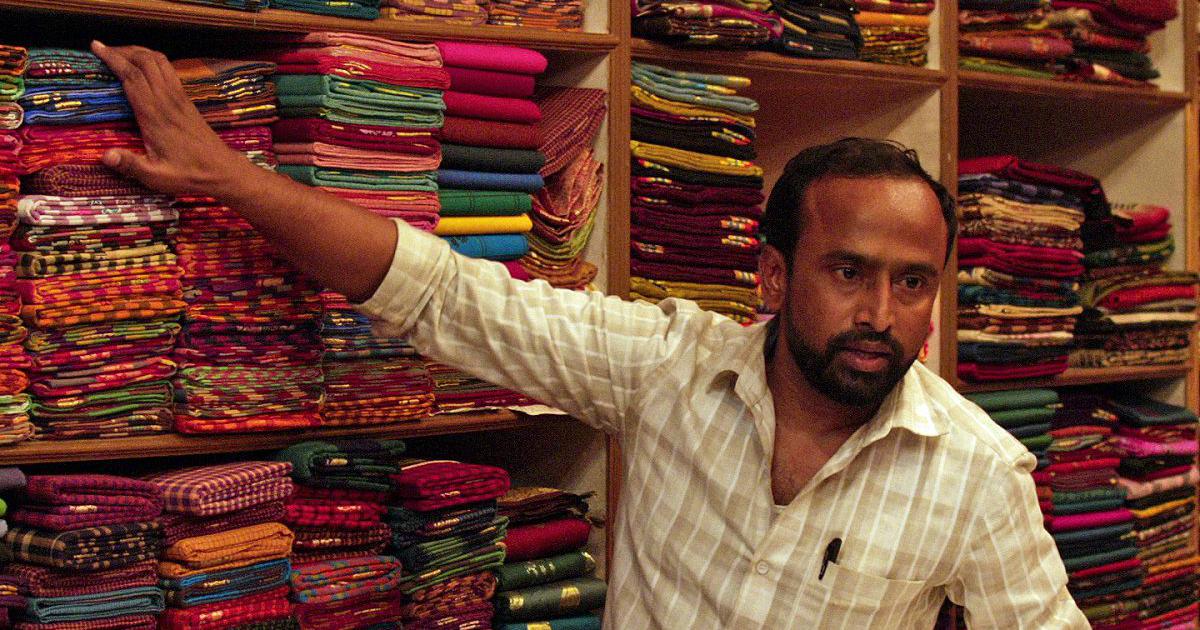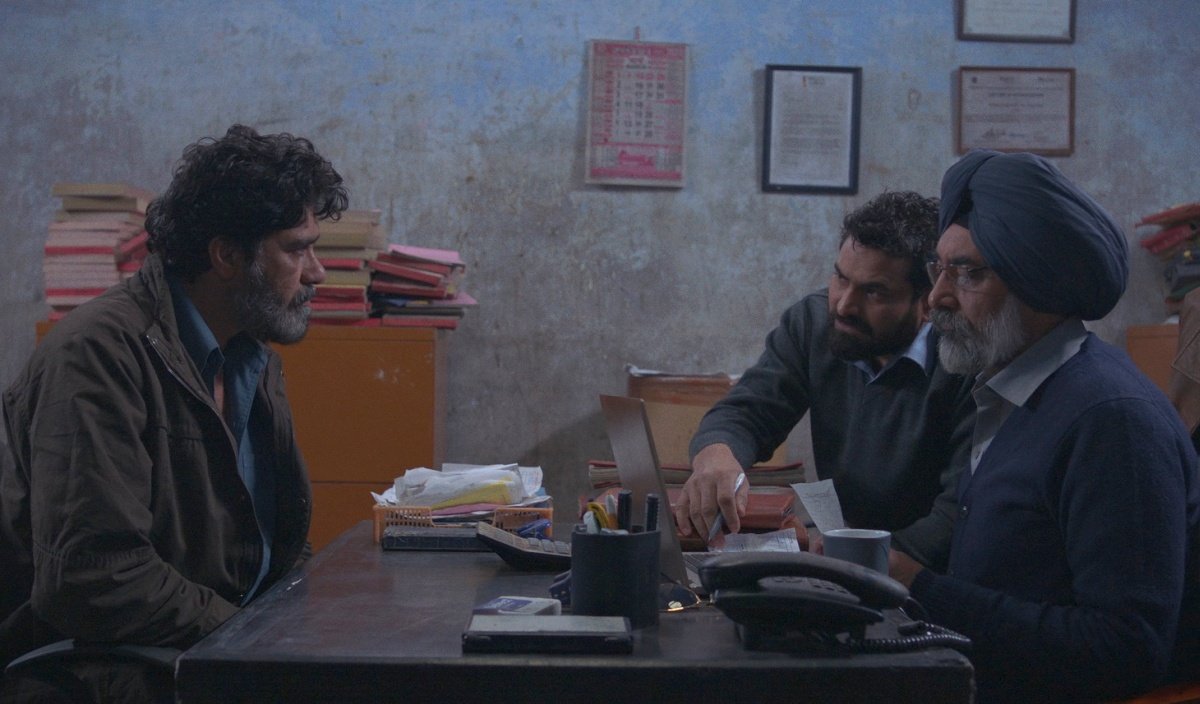With cinema halls shut down and shootings of films coming to a halt in the early phase of 2020, under the compulsion of the nationwide lockdown, people around the world excessively consumed the online contents. Even in India, the OTT platform witnessed some of the biggest feature films from across India releasing online. At the same time, the film festival and screenings of independents films, documentaries, and short films also happened online. In this process, we were able to discover independent voices in cinema, both fiction and non-fiction. Though some of the screenings had strict rules and were accessible to the press, critics, etc but their buzz in social media was not less than a revelation. Some of the films even went on to win awards at some of the major festivals around the world. So, here is a list of 10 indie Indian filmmakers who made their presence felt with their unique and uncompromising voice, during the year 2020.
1. Pushpendra Singh
In the year 2014, Pushpinder Singh made his foray into the world of cinema with his debut feature film Lajwanti (The Honour Keeper, 2014), based on a book by Vijaydan Detha, which narrates a folk tale set in the Thar desert and explores the inner struggles of a married woman to honor a dream and in that search find the higher meaning of love and freedom. Thereafter he created one wonder after the other with his creative acumen that resulted in Ashwatthama (2019) Maru ro Moti (Pearl of the Desert, 2019). His fourth full-length feature film Laila Aur Saat Geet (2020) has been awarded the Best Director Award in the Young Cinema Competition (World) at Hong Kong International Film Festival, 2020.
The film was also screened in the ‘Encounters section of the Berlin Film Festival, 2020. Based, again, on a short story by Vijaydan Detha, the Gojri-Hindi language film narrates the tale of a beautiful Kashmiri shepherdess from the Bakarwal community and tracks her trajectory in seven parts, each marked by a song. The film is also a part of the competition section of the 26th Kolkata International Film Festival, to be held from the 8th of January to Friday, 15 January 2021.
2. Arun Karthick

Arun Karthick is a self-taught Tamil filmmaker from Coimbatore who made his debut with the film ‘The Strange Case of Shiva’ (2015) which premiered at the International Film Festival of Rotterdam. This year his sophomore ‘Nasir’ (2020) has won the NETPAC award at the same film festival. The approximately 85 minutes long film narrates a day in the life of the titular character, who works as a saree salesman and lives with his wife, son, and old mother. The film underlines the difficulties an individual from the minority class face in India as he silently combats the prejudices from religious bigots.
RELATED TO 10 INDIE INDIAN FILMMAKERS: NASIR (2020) REVIEW: LIVING A LIFE UNDER RELIGIOUS AND COMMUNAL BIGOTRY
According to Robert Rauschenberg, “The artist’s job is to be a witness to his time in history”. Arun does exactly that in Nasir, his images makes vivid documentation of hatred in our society. The film evocatively portrays the fate of an ordinary individual caught in the quagmire of an unfortunate event that is beyond his control. The subtle framing and measured juxtaposition of shots accentuate the violence that has become an integral component of our society. The film is meant to prod people into thinking that continuing on this current path of intolerance and hatred could spell the destruction of India’s pluralistic ethos.
3. Akshay Indikar
Akshay Indikar’s sophomore Sthalpuran (Chronicle of Space, 2020)’, is an independent Marathi feature film that provides an ambitious attitude rejecting the orthodoxy and conservatism of conventional filmmaking. The film narrates the plight of an eight-year-old boy Dighu, who migrates to the coastal area of Konkan with his mother and elder sister to stay at his grandparents’ village. How he copes with the new environment along with the lingering absence of his father, who has vanished apparently into thin air, forms the bedrocks on which the foundation of the rest of the film unfurls. The young boy jots down the psychological state of his inner struggle in a diary is revealed as an exposition to the viewers with creatively designed title cards and appear at irregular intervals of the narrative.
The static framing of the fixed-camera tableaux reflects the visual sensibility of Indikar.
SIMILAR TO INDIE INDIAN FILMMAKERS: THE 20 BEST INDIAN MOVIES OF 2020
The natural colors highlighted within the sequences lend the film a glimmer of naturalism as if they have been intensified and distorted by the prism of Dighu’s quest to cope with the newly discovered environment. The silent natural imagery of the film is heavy with aesthetic, both on a spiritual as well as philosophical level. The sound design supports the aural thrust of the filmmaker’s elegy, balancing natural sounds of the sea, torrential rain, and the roaring industrial sound of a brick factory and heavy vehicles.
4. Prateek Vats
Two times National Film Award Winner, Prateek Vats’, made his feature film debut with Eeb Allay Ooo (2019). The film narrates the plight of a young migrant, Anjani, who due to the efforts of his brother-in-law gets a contractual government job of mimicking langurs in Delhi, the capital of India. With an intense keenness towards humour, the film displays an approach towards anti-establishment sentiments that resonates with the plight of individuals trapped within the norms of the societal and human condition.
ALSO READ: 10 CONTEMPORARY INDIAN DOCUMENTARIES ON REAL-LIFE CHARACTERS
The film has won the Golden Gateway award as well as the Special Jury Mention in the India Gold section of the 2019 edition of the Jio MAMI Mumbai Film Festival, India held in Mumbai. The film was also selected in the competitive section of the Pingyao Film Festival, China same year. It was also a part of the Panorama Section of the Berlin Film Festival, 2020. The film has released at theatres across selected cities in India on the 18th of December 2020.
5. Achal Mishra
Achal Mishra’s Maithili language family drama Gamak Ghar (2019) displays a cinematic style that comprises of precise compositions, contemplative pacing, and elliptical storytelling as signature techniques to evoke a sense of melancholy and poetry in everyday existence. In one and a half hours, we experience a lifetime, as a family reunites at their ancestral home to celebrate new birth in the family, with all its turbulences and unique epiphanies. A realization dawns upon us that every one of us is living a life as vivid and complex and exploring ideas through little moments of everyday life.
RECOMMENDED: GAMAK GHAR [2019]: ‘MAMI’ REVIEW – A BEAUTIFUL SURPRISE
The film was one of the 20 films to be nominated for FIPRESCI India’s Grand Prix: Best Feature Film of 2019. At the NFDC Film Bazaar 2019, the film won the VKAAO Award for Most Anticipated Film by a Debut Director.
6. Chaitanya Tamahane
It is believed that when an individual wants something wholeheartedly; the entire universe conspires in helping you to achieve it. But the fictional adage does not always ring true for certain individuals despite their honest attempts. Chaitanya Tamahane’ sophomore The Disciple (2020) is a character study that treads on a similar concept as it charts the journey of a quixotic young Hindustani Classical vocalist who in due course of the narrative encounters a jarring reality. With this film, Chaitanya confirms his position as one of the most promising filmmakers from India who has bolstered his reputation for painting grim portraits of the harsh realities of life.
ALSO READ: THE 20 BEST REGIONAL INDIAN MOVIES OF THE DECADE (the 2010S)
At the 77th Venice International Film Festival, it became the first Indian film since Mira Nair’s Monsoon Wedding (2001) to be a part of the main competition. It further created history by winning two awards. The FIPRESCI International Critics Prize presented by the International Federation of Film Critics and the Best Screenplay award. It was also screened at the Toronto International Film Festival, 2020, where it was named a winner of the Amplify Voices Award.
7. Ivan Ayr
With his debut Soni (2018), Ivan Ayr created a world of contemplative and indulgent interpretation with a refreshing take on the moral dynamics between the cops and the criminals, the grey area between traditional binaries existing in a misogynist society. The beautifully designed long takes, helps the viewer to get a peek into the psyche of the characters as it reveals an uncommon sense of self-analysis with no conscious regard for social criteria of moral judgments. With his sophomore, Meel Patthar (2020), Ayr narrates the tale of a truck driver who after losing his wife, tries to connect with his past and comes to terms with his present. The director displays the zenith of creativity by naming his principal characters after legendary poets Ghalib and Pash.
RECOMMENDED IN RELATION TO INDIE INDIAN FILMMAKERS: SONI NETFLIX [2019] REVIEW – A POWERFUL CHARACTER DRAMA THAT QUESTIONS GENDER ROLES
The film premiered in the Orrizonti (Horizons) section of the 77th Venice International Film Festival and has also won the Best Asian Film Festival Award at Singapore International Film Festival in 2020.
8.Vijay Jayapal
Vijay Jaypal’s debut feature film Revelations (2016), was set in the fascinating city of Kolkata, which explores themes such as guilt, redemption, and female sexuality in the context of an Indian marriage. It deals with the tale of a young Tamil woman, grappling with unknown tensions in her four-year-long marriage, develops a complex relationship with her new neighbour, a middle-aged man, who has a mysterious past of his own. With his sophomore Nirvana Inn (2019) Jayapal sets his story in the mountains of Himachal Pradesh and begins with a beautifully designed picturesque wide shot where we are introduced to the protagonist in the very first scene. Initially, no exchange of dialogues takes place between the characters in the first few scenes. But then we come across the first ‘shocking’ scene of the film where Jogi hears a deafening animalist guttural sound emitting from the room right above his from an undisclosed source. He listens with a look of fearful disturbance on his face and musters the courage to step out from his bed and recheck the latch of his door. This sets the dark and mysterious tone of the film and immediately raises our expectations of a chilling and thrilling ride from the film.
ALSO READ: NIRVANA INN (2020) CINEMAPRENEUR REVIEW – A TREMENDOUS ADIL HUSSAIN ELEGANTLY SHOULDERS AN UNEVEN FILMIC PSYCHOLOGICAL EXAMINATION
Adil Hussain’s effective performance as the protagonist Jogiraj Chakraborthy is meticulously structured in its emotional progression. His guilt-ridden expression is so natural that it immediately strikes a chord with the viewer. He utters the Hindi dialogues with an Assamese accent that brings such naturalism that one is compelled to empathize. The film premiered under the “A Window on Asian Cinema” section at the 24th Busan International Film Festival. Adil Hussain bagged the Best Actor award at the Indo-German Film Week in Berlin, 2020 for his performances in Preeksha (2020) and Nirvana Inn.
9. Devashish Makhija
Devashish Makhija’s Ajji (Grandmother, 2017) is an unsettling revenge drama that unfolds like a thriller. After a serial sex offender brutally rapes her 10-year-old granddaughter, the young girl’s grandmother’ sets out to seek revenge, after custodians of law refuse to bring the rapist to the book, thanks to his influential political background. The theme of the film raises issues that the underprivileged are not expected to have a voice or courage to defend them. They are punished for doing so. Makhija gives a thrilling spin to this tragic social drama by maintaining a creepy silence throughout, as we see the grandmother spying and chasing down the criminal despite her age-related ailments. The film can be summed up as revenge dramas that weave its charm through grotesque crimes and resilient characters. Within the dualistic contours of the rape-revenge subgenre, the director manages to pack sufficient tension in the silences, which evoke dread and doubt.
MUST-READ: BHONSLE [2019]: ‘HFF’ REVIEW – A REDEFINING CHARACTER STUDY
However, with Bhonsle (2018) Makhija depicts the story of a Mumbai policeman who has just retired from his job and prefers to live a solitary life in a sprawling working-class residential building that is a world unto itself. The plot of the film takes a turn as he stands up against divisive factions. As the tension keeps rising he takes justice into his hand, which amounts to a violent finale. The filmmaker displays his cinematic ambition with the visual and aural metaphor that delivers cinematic grammar with varying results. A keen visual balance is maintained by the meticulous use of the camera foregrounding and elliptical edit. The film’s first look was launched at the 2018 Cannes Film Festival. It was premiered in the ‘A Window on Asian Cinema’ section of the Busan International Film Festival, 2018 and was also screened in the non-competitive India Story section at the MAMI Film Festival, India and International Film Festival Rotterdam, 2018. Since June 26th, 2020, the film is streaming on SonyLiv, and people around the world got an opportunity to view this riveting tale.
10. Pankaj Rishi Kumar
With Janani’s Juliet (2019), the veteran documentary filmmaker, Pankaj Rishi Kumar, follows Indianostrum, a Pondicherry based theatre group, setting out to introspect the implications of caste, class, and gender through an adaptation of Shakespeare’s Romeo and Juliet. The group is deeply disturbed by a spate of honor killings in India and the process of their preparation captured by the almost fifty-three minutes long documentary emerges as a critical reflection and commentary on the contemporary world, where love struggles to survive. The documentary is produced by PSBT.
As playwright Koumarane Valavane and his group prepare for the play, Chandala, Impure, we observe their actions as an active participant. While adopting from the classic play by Shakespeare, the intricacies, as well as evils of casteism, have been woven around the narrative. The journey thus represented also becomes a kind of introspection where the members of the troupes unveil the ill effects of caste-related violence in our society and perceive the society with a renewed vision.
At the 3rd South Asian Short Film Festival, 2020, organized online by the Federation of Film Societies of India (Eastern Region), the film had won two awards. Satyajit Ray Golden Award for the Best Documentary and Mrinal Sen Golden Award for the Best Direction in Documentary.











![Extraction [2020] Netflix Review: An effort that is mediocre at best](https://79468c92.delivery.rocketcdn.me/wp-content/uploads/2020/04/Extraction-cover-1-768x384.jpg)



